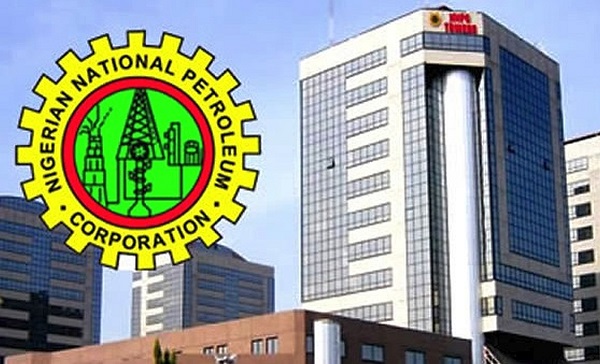This post has already been read 1458 times!
• PPPRA to resume issuance of monthly pricing guide
• We’ll respond soon, NLC, NUPENG declare
• NIMASA, NPA to collect charges in naira, 50% reduction
Nigeria Labour Congress (NLC) and the Nigeria Union of Petroleum and Natural Gas Workers (NUPENG) have said they are studying new regulations adopted by the Federal Government yesterday to guide importation, pricing and distribution of petrol.
The unions promised to make their positions known soon.
Under the new rules, which was submitted by the Technical Committee on Premium Motor Spirit (PMS) Pricing Framework, there is now a single forex window for all petroleum products importers into the country including the Nigerian National Petroleum Corporation (NNPC).
Also, the technical committee recommended the issuance of monthly pricing guide by the Petroleum Products Pricing Regulatory Agency (PPPRA).
The technical committee, which was inaugurated on December 14, 2020 by the Minister of Labour and Employment, Dr. Chris Ngige, is chaired by Onochie Azubuike Anyaoku.
The terms of reference of the committee include coming up with a viable framework for PMS price modulation.
Submitting the report of the committee to the Federal Government in Abuja, Anyaoku pointed out that the non-adoption of common exchange rate exposed Nigerians to possible exploitation.
He also said the operations and charges of Nigeria Ports Authority (NPA) and Nigerian Maritime Administration and Safety Agency (NIMASA) helped to push up the price of petrol in the country.
The committee recommended that the charges of NPA and NIMASA, which are currently domiciled in dollar, should be paid in naira to ease pressure on national currency and ease operations of petrol importers.
The report stated: “Non-adoption of common exchange rate will expose Nigerians to exploitation by market participants. Universal exchange rate is the most effective way of liberalising the sector and introducing competitiveness that will ultimately lead to fair price. On lightering expense, about 70 per cent of the ship to ship happen in the Lagos area. NPA and NIMASA charges are paid in U.S. dollars. Marketers are compelled to source forex from the parallel market to pay the charges, thereby leading to higher pump price. This is responsible for the lightering expense of about N4 per litre.”
The report noted that observations were made about the beneficiaries of wholesale margin meant for the importer. The existing template dedicated the margin only to any company that delivers product. Consequently, bulk importers do not have margin at all for import activities.
The report recommends that the PPPRA should convey periodic meetings with Petroleum Products and Marketing Company (PPMC) and other importers to construct actual costs of supply reflective determination as an interim solution to the confusion in the downstream sector.
It added that the NLC and its Trade Union Congress (TUC) counterpart as well as PENGASSAN and NUPENG should witness the determination of prices at periodic meetings with other stakeholders.
The committee also mandated NNPC and all importers to make import data available to the PPPRA to facilitate informed decisions on price guide.
The report also noted that all importers, including NNPC must adopt the same forex window to ensure accurate pricing.
Accordingly, PPPRA board should adopt closest average as a basis for price determination.
PPPRA is to also ensure market rates for shuttle vessels are monitored and reflected on a monthly basis while government should enforce the immediate collection of NPA and NIMASA charges in Naira to reduce pressure on forex demands and price hike.
The technical committee also proposed a 50 per cent reduction of NPA and NIMASA charges to reduce pump price of petrol in the country.
The committee urged the Federal Government to embark on massive campaign on the benefits of deregulation and targeted communication on distinction between price fixing during regulated price regime and issuance of monthly guiding price by the PPPRA under a deregulated regime.
Also, government should develop an appropriate strategy on public awareness on the necessity of deregulation and the benefits therein with a view to gaining public understanding and acceptability of the deregulation policy, which will also reduce pressure on labour to react whenever there is an upward movement of the pump price.
The recommendations of the technical committee will further be debated on February 22, 2021 and might be adopted after both organised labour and government team agree on all the suggestions made.
Speaking after the presentation, the NLC President, Ayuba Wabba, stated that the organised labour needed to do a broader consultation to come up with clear positions on what would be beneficial to both Nigerian workers and all Nigerians.
In his response to the recommendations of the technical committee, NUPENG President, William Akporeha, told The Guardian that the two unions in the oil industry as well as the two labour centres were studying the recommendations and will make its positions known on February 22, 2021 when both the organised labour and government team would meet again.
“Well, we have seen the recommendations of the technical committee and I can say that we are currently studying the recommendations. Labour will painstakingly study it with a view to making its feeling known during the next round of negotiations. Labour’s position will be influenced by the interests of the Nigerian people. We know what our members feel and I can assure Nigerians that their interests will guide our position on all the issues that are at stake.”
Earlier, the Minister of Labour and Employment, Dr. Chris Ngige, had disclosed that a meeting with stakeholders on the new rules had been adjourned till February 22.
He said the adjournment was to enable the representatives of organised labour subject the report to the analysis of their various organs.
Ngige said: “The Committee on Petroleum Pricing has finished their work and sent in their report. We have received and adopted the report. Labour asked for some time to subject the report to their various organs. It is a technical report, so they need further elucidation from their technical and research teams.”



